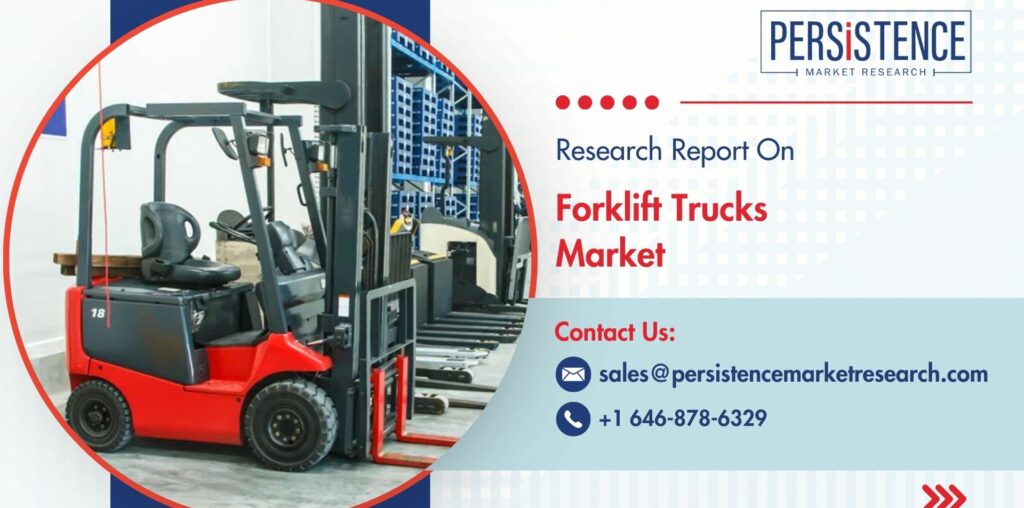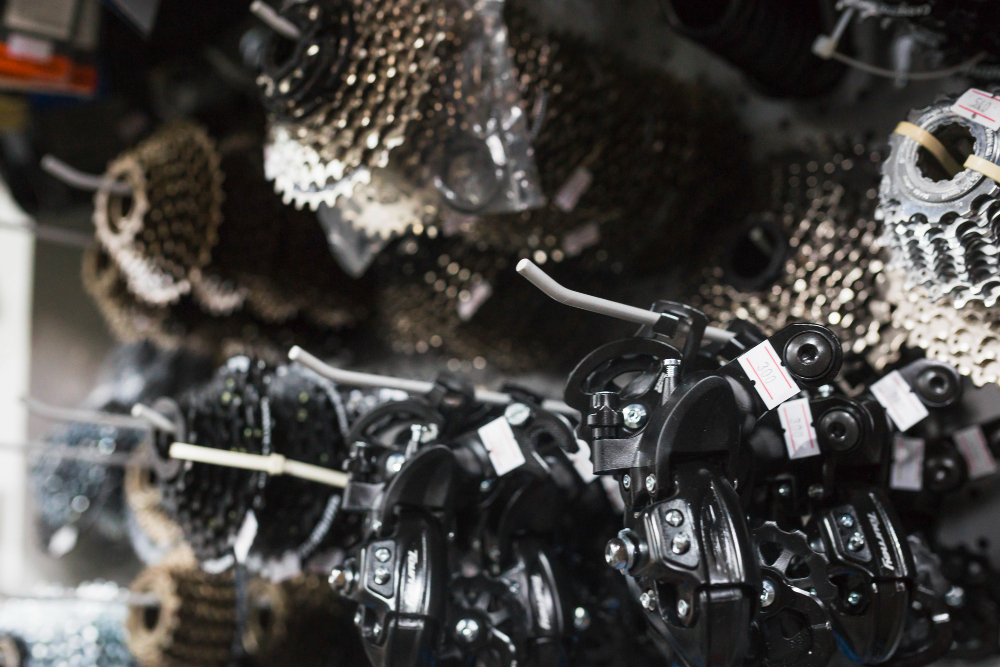The global forklift trucks market is undergoing a significant transformation driven by the growing emphasis on sustainability, efficiency, and automation. With industries worldwide striving to reduce their carbon footprint and optimize operational costs, the demand for eco-friendly forklift solutions is rising steadily. According to Persistence Market Research’s projections, the forklift trucks market is estimated to increase from US$ 61.9 Bn in 2024 to US$ 103.6 Bn by 2031. The market is projected to record a CAGR of 7.6% during the period from 2024 to 2031. This growth trajectory highlights the industry’s shift towards advanced, energy-efficient, and environmentally sustainable forklift solutions.
The Rise of Electric Forklifts
One of the most prominent trends in the forklift trucks market is the rapid adoption of electric forklifts. Businesses are increasingly replacing traditional internal combustion (IC) engine-powered forklifts with electric variants due to their numerous advantages, including lower emissions, reduced operating costs, and enhanced efficiency. Governments worldwide are also implementing stricter emission regulations, incentivizing companies to invest in electric forklifts to meet sustainability goals.
Advancements in Battery Technology
The increasing adoption of lithium-ion (Li-ion) batteries is further driving the shift towards electric forklifts. Unlike traditional lead-acid batteries, Li-ion batteries offer higher energy efficiency, faster charging times, longer lifespans, and lower maintenance requirements. These advancements allow businesses to reduce downtime and enhance productivity while minimizing their environmental impact.
Automation and Smart Forklift Technology
Automation is another major trend reshaping the forklift trucks market. Autonomous forklifts equipped with AI-powered navigation, sensors, and machine learning algorithms are revolutionizing warehouse operations by improving efficiency and reducing human intervention. Smart forklifts with IoT connectivity allow businesses to monitor performance in real-time, optimize fleet management, and ensure predictive maintenance, leading to cost savings and increased operational reliability.
Growth of the E-commerce and Logistics Industry
The booming e-commerce industry is fueling the demand for advanced material handling equipment, including forklifts. With warehouses and distribution centers experiencing an unprecedented surge in order volumes, businesses are increasingly investing in high-performance forklifts to streamline inventory management and accelerate order fulfillment processes. Electric and automated forklifts are particularly gaining traction in this sector due to their ability to improve efficiency and sustainability.
Regulatory Push Towards Sustainability
Governments and regulatory bodies worldwide are implementing stringent environmental regulations to curb carbon emissions. Incentives and subsidies for adopting electric and hybrid forklifts are encouraging businesses to transition away from conventional fuel-powered forklifts. Additionally, organizations are increasingly incorporating sustainability goals into their corporate strategies, further driving the demand for green material handling solutions.
Challenges in the Forklift Trucks Market
Despite the promising growth prospects, the forklift trucks market faces certain challenges. The higher initial investment cost of electric and autonomous forklifts remains a key concern for small and medium-sized enterprises (SMEs). Additionally, the availability of charging infrastructure and battery disposal regulations pose operational challenges that need to be addressed for the widespread adoption of electric forklifts.
Future Outlook
The forklift trucks market is poised for remarkable growth, with sustainability and technological innovation at the forefront of industry trends. As companies prioritize eco-friendly solutions and automation, the demand for electric, lithium-ion, and autonomous forklifts will continue to surge. The integration of artificial intelligence, IoT, and smart fleet management systems will further enhance operational efficiency, making forklift operations safer and more cost-effective.
Conclusion
The forklift trucks market is undergoing a profound transformation, driven by the shift towards sustainability, electrification, and automation. With a projected CAGR of 7.6% between 2024 and 2031, the industry is expected to witness significant advancements in energy-efficient and smart forklift technologies. As businesses strive to align with global sustainability goals, the adoption of electric and autonomous forklifts will play a crucial role in shaping the future of material handling and logistics.




